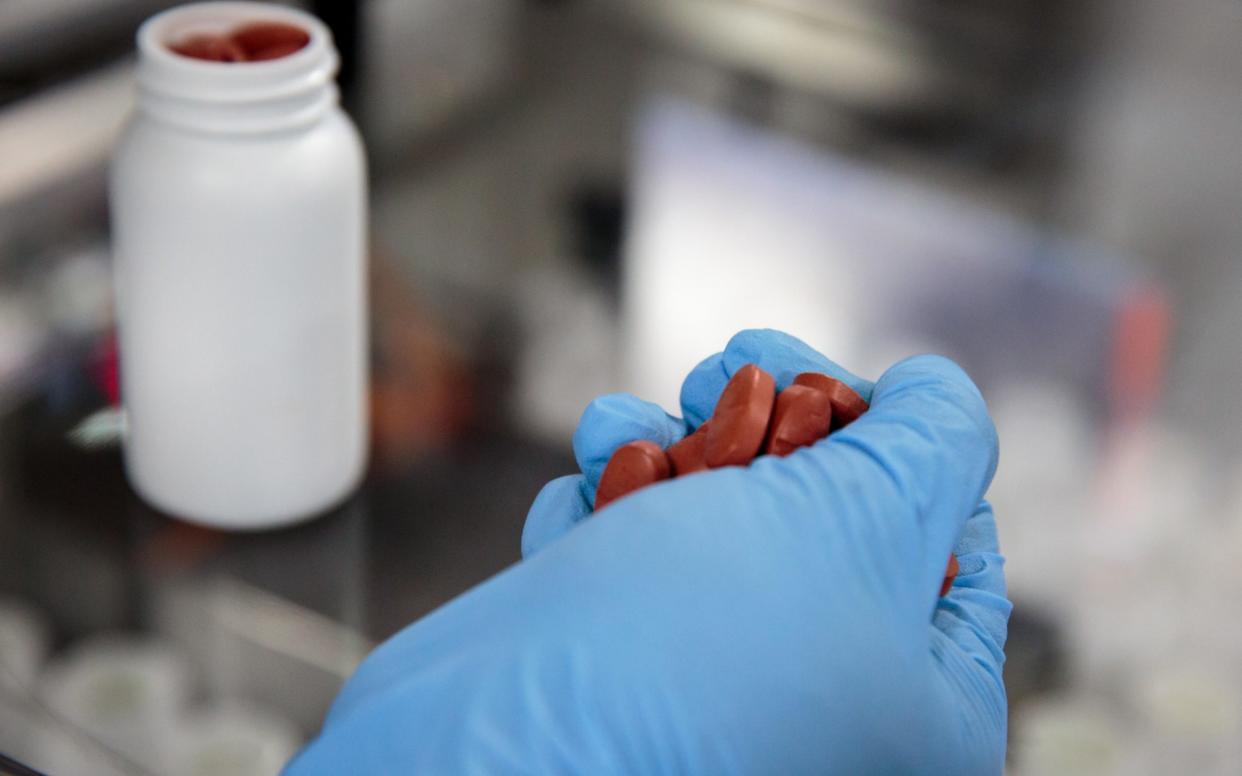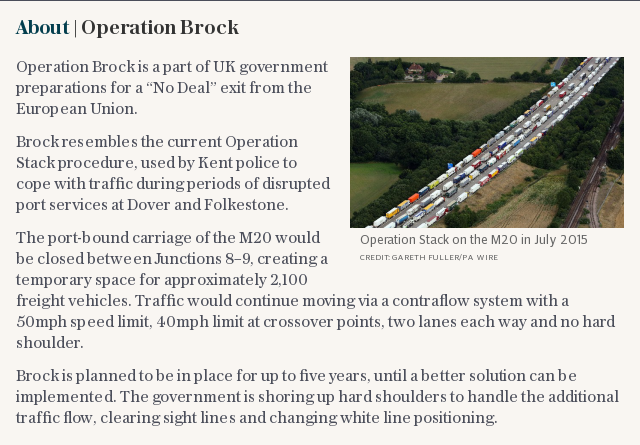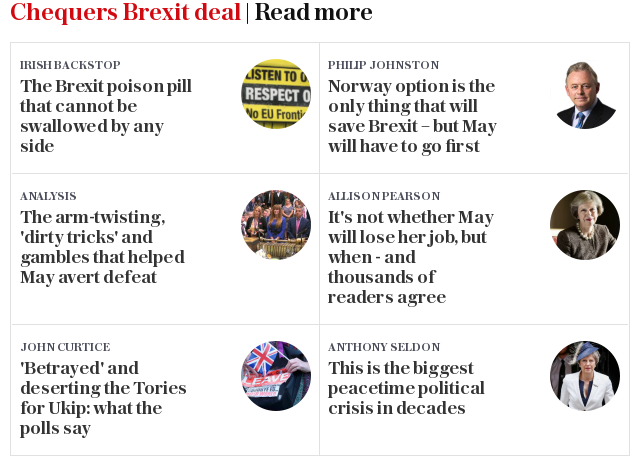Tories launch project 'no fear' to ensure EU medicine and car parts will be available in the event of 'no-deal' Brexit

Britain will recognise some EU regulations in the event of a no-deal Brexit to ensure that the country does not grind to a halt, The Telegraph has learned.
Government papers setting out what will happen if the UK leaves without a deal make clear that Britain will adopt a “flexible” approach to ensure EU medicines, car parts and chemicals are still available in the UK.
One industry source, who has seen several of the papers that are due to be published on Thursday, said the “permissive” nature of the plans suggest they are “project ‘no fear’”.
Concerns have been raised that the M20 will be turned into a giant lorry park because of huge disruption to cross-channel trade caused by the EU in the event of a no-deal.
However, away from customs, the papers offer a constructive way for Britain to continue trading with the EU after a no-deal Brexit. On medicines which are made in the EU, the papers say that the “UK regulator would take steps to keep market access for importers open to avoid disruption”.

The approach will, however, leave the UK open to claims that it is giving up some negotiating strength by agreeing to accept EU goods without ensuring British goods will be accepted on the Continent.
One source said that Britain “essentially gives up a negotiating card by saying to Brussels ‘here, have my market access’, but gets nothing back in return”.
EU exit talks restart between Dominic Raab, the Brexit Secretary, and Michel Barnier, the EU’s chief negotiator, in Brussels on Tuesday. Mr Raab will give a speech on Thursday, setting out the Government’s plans for a no-deal.
Last night, the Brexit Secretary said: “It is the responsibility of the EU to ensure its consumers and businesses are not harmed.
“The UK Government believes this is best achieved by both sides taking a non-disruptive approach and will be encouraging cooperation with the EU on no-deal planning.
“Securing a deal is still by far the most likely outcome, but we want to make sure that we clearly set out the steps that people, businesses and public services need to take in the unlikely event that we don’t reach an agreement.
“It’s the responsible thing for any government to do, to mitigate the risks and make sure the UK is ready to make a success of Brexit.”

Each of the 84 papers follows the same format, opening with remarks saying that a “no-deal” Brexit is unlikely, but that “we are a responsible government and we should be prepared”.
The papers – which will be published in batches – then set out “how it works now” and “how it works in a no-deal scenario”, with scenarios to allow companies to prepare.
Government officials described the papers as “sensible, proportionate, and part of a common-sense approach to ensure stability whatever the outcome of talks”.
A source said: “The truth is in some sectors there won’t be much change, it is a mixture.
“It is not a case of ‘worse for us and better for them’.”

Mr Raab will outline in his speech how the Government will mitigate the potential risks of leaving the EU without a deal and ensure continuity and stability for businesses and the general public.
Separately, a new report from campaign group Lawyers for Britain claims that fears of higher food prices and medicine shortages are “ridiculous and unjustified”.
Details of the Government plans came as a defence minister warned the EU is being “reckless” by using national security as a “bargaining chip” in the negotiations over Brexit.
Writing inTelegraph, Tobias Ellwood accused Brussels of “belligerence” and said it “beggars belief” that it has failed to cooperate on post-Brexit security.

 Yahoo News
Yahoo News 
